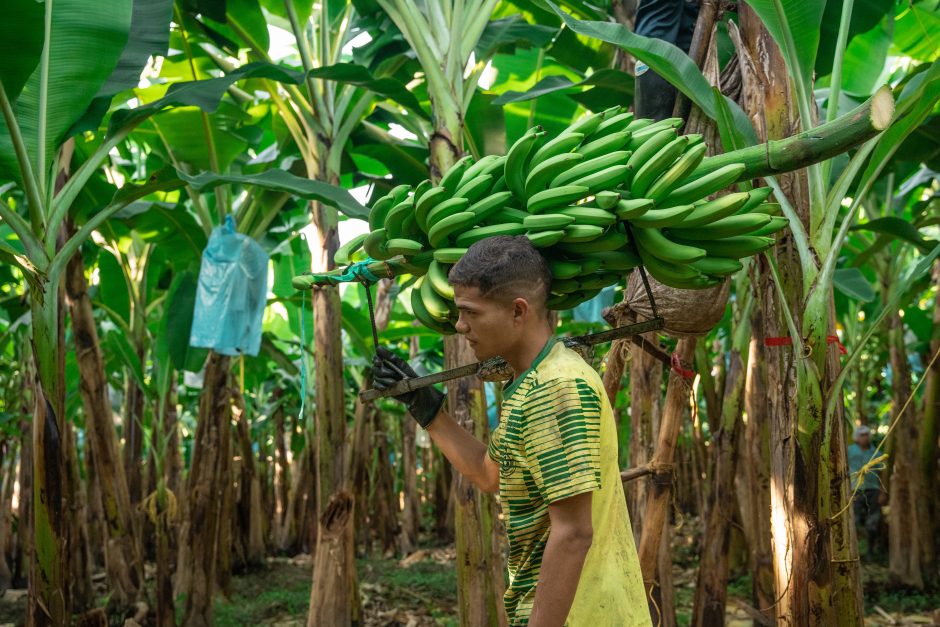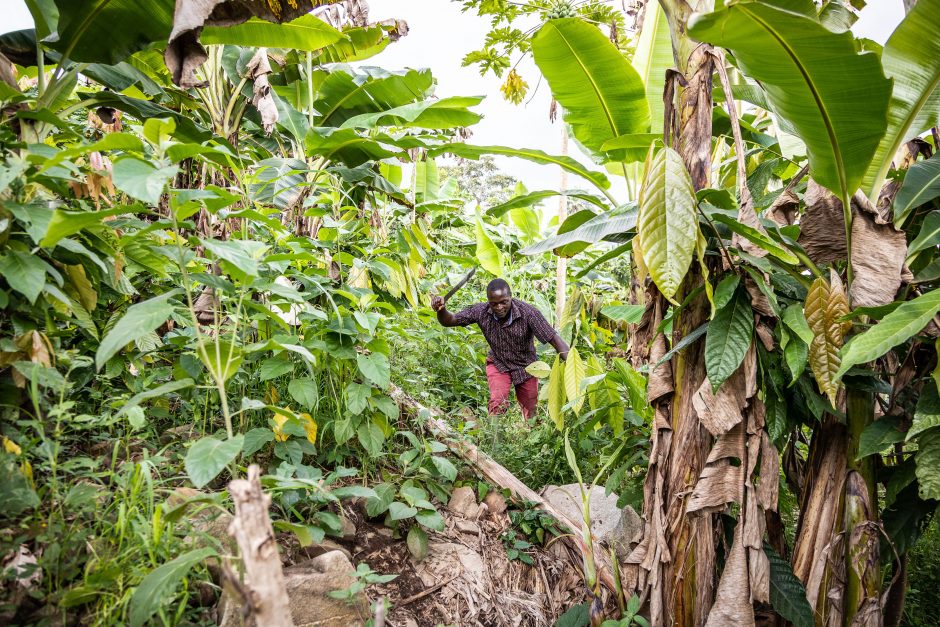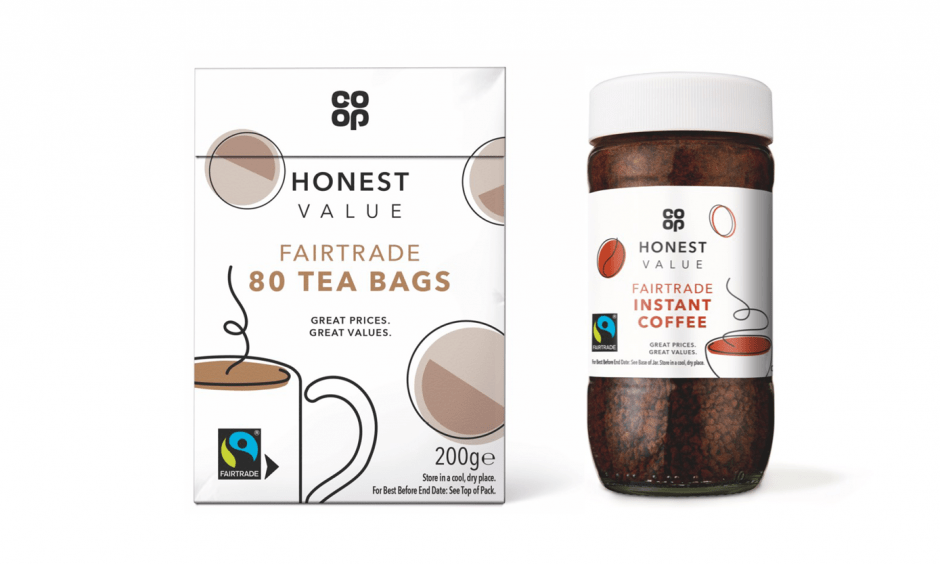Between 27 February and 12 March, the UK celebrated Fairtrade Fortnight – two weeks of events, conversation and action to highlight the positive difference purchasing Fairtrade products can make – and draw attention to key issues affecting farmers around the world.
“Obviously, there is a cost of living crisis, which we talk about a lot in the UK, but it’s actually impacting everyone globally,” said Sarah Brazier, head of campaigning and engagement at the Fairtrade Foundation. “For smallholder farmers and co-ops, they’re dealing with the cost of fuel, fertiliser, and food all increasing beyond what is affordable for them.”
Data collected from Fairtrade banana farms found that between 2021 and 2022, the cost of fertilisers rose by 70%, fuel by 39% and packaging by more than 20%.
Grain, oil and fertiliser shortages during the pandemic and due to the war in Ukraine are particularly exposing people that are in low income countries to food poverty, says Brazier: “They’re getting to a point where basics, such as bread, are becoming unaffordable.”
On top of all this, the ongoing climate crisis is also a major concern for Fairtrade farmers, who are dealing with extreme temperatures, prolonged droughts, floods and hurricanes, changing patterns in growing seasons and increasing crop diseases.
The Endangered Aisle, a report published by the Foundation during Fairtrade Fortnight looked into how these issues are affecting farmers of a number of popular foods, such as bananas, coffee and cocoa. It found that 48% of UK banana imports originate from countries with high climate change vulnerability, 20% of the UK’s coffee is produced in countries with high risk to biodiversity, and 82% of the land footprint associated with the UK’s cocoa imports are countries with high or very high risk of loss of habitats and ecosystems services through land use change.
With 80% of the world’s food coming from more than 600 million small-scale family farms, there is a vital need, on both the producer and consumer end, to support these farmers in adapting to climate change.
To meet these challenges, there are a number of safety nets and support systems afforded to Fairtrade producers, such as the minimum price (the lowest possible price that Fairtrade producers can charge) and the Fairtrade premium (an additional sum paid to farmers and workers to invest in their own projects).
Albeiro Alfonso Cantillo, known as Foncho, is a Fairtrade banana farmer and member of the Coobafrio co-operative in Magdalena, Colombia. Foncho explained that the Fairtrade Minimum Price helped him and his family get by through the pandemic. “Those two dollars we get above the cost of each box of bananas make a difference for us, so we could be able to sustain ourselves as a family and to save.”

Foncho’s children were educated through scholarships funded by the Fairtrade premium, enabling his daughter to train as an accountant and bring these skills back to the local economy.
However, when things get tough, the premium can also be used simply for survival, says Brazier.
“Increasingly, we’re seeing that the premium, which perhaps 25 years ago might have been invested in schools or road building, is now being invested in everyday needs, such as putting food on the table, or investing in climate adaptation.”
Another lifeline for Fairtrade producers is their involvement in local co-op structures, says Brazier. These are networks through which farmers can support and educate each other.
Sadick is a Fairtrade cocoa farmer and member of Kupa Kokoo co-operative in Kumasi, Ghana. Through his co-op, Sadick received training in agro-forestry practices to adapt to climate change by improving soil quality, planting for shade and encouraging biodiversity.
“I didn’t know I was punishing the land,” he says. “Now because of this project I’ve seen the benefits, there are more nutrients in the soil.”

Foncho is also part of a Fairtrade programme that helps him manage tropical diseases, reduce his carbon and water footprint and improve his fruit by using bio-fertilisers. The programme has enabled Foncho to reduce the use of chemicals such as herbicides and insecticides, which he says was vital during the pandemic when he couldn’t buy them.
“Every peso this programme benefits me with has an impact in my family. Today, more than the financial part, the main benefit is to recuperate our soil,” says Foncho. In addition to buying Fairtrade, UK shoppers can go further, by putting pressure on businesses to continue to prioritise their ethics and protect suppliers, and by lobbying their local MP to make a difference, says Brazier: “We need the government to allocate more funding to restore what’s been degraded, to support farmers and to make sure that they’re central in the decisions they make. Civil society in general, including consumers, can have a big say in that.”
When it comes to shopping, the cost of ethical purchases can be seen as a barrier to buying Fairtrade. However, Fairtrade is becoming increasingly available among retailers’ discount lines such as the Co-op Group’s Honest Value tea and coffee.

“With a cost of living crisis, one of the questions that we get a lot from consumers is ‘how can I afford to choose Fairtrade when I’m thinking about so many other things?’, but Fairtrade products are actually available at quite affordable prices. We’re seeing many of the supermarkets putting Fairtrade into their value ranges,” says Brazier.
She wants shoppers to know that “they are surrounded by other people that want to do the right thing”.
“I know it’s really difficult out there for everyone. But we really feel that where people understand the issues and where we’re able to share that information with the UK public, they have already shown that they do want to continue to live their values when they go out and shop.”